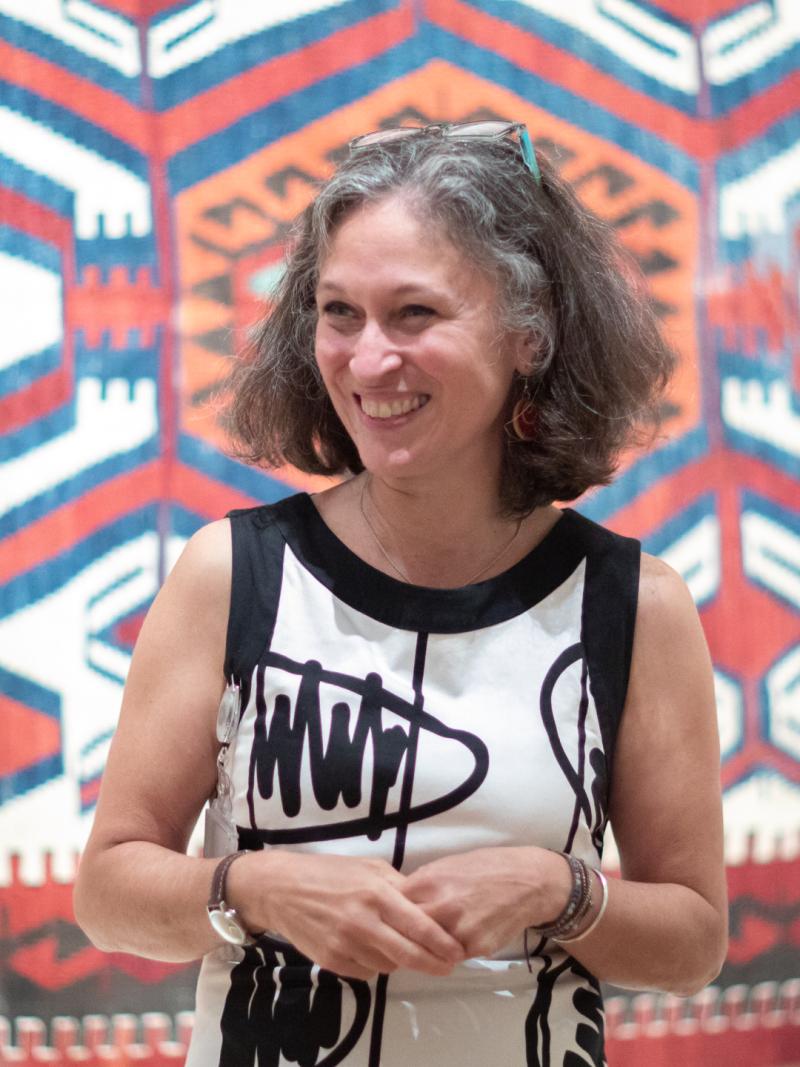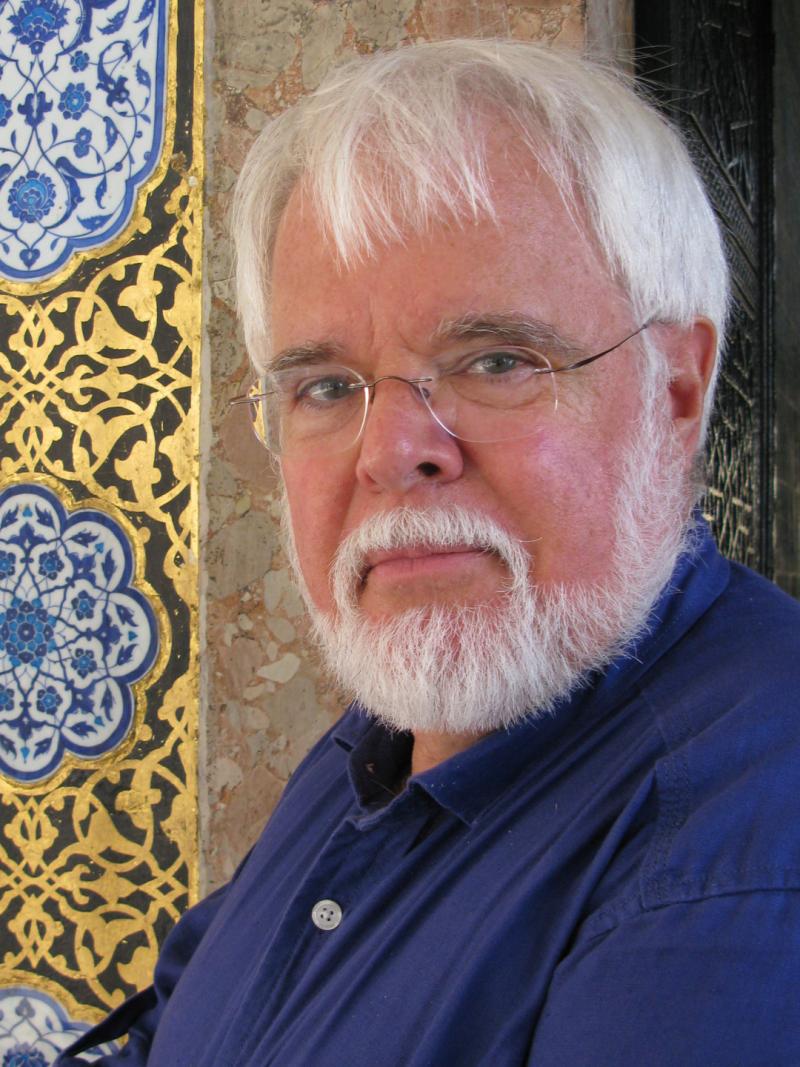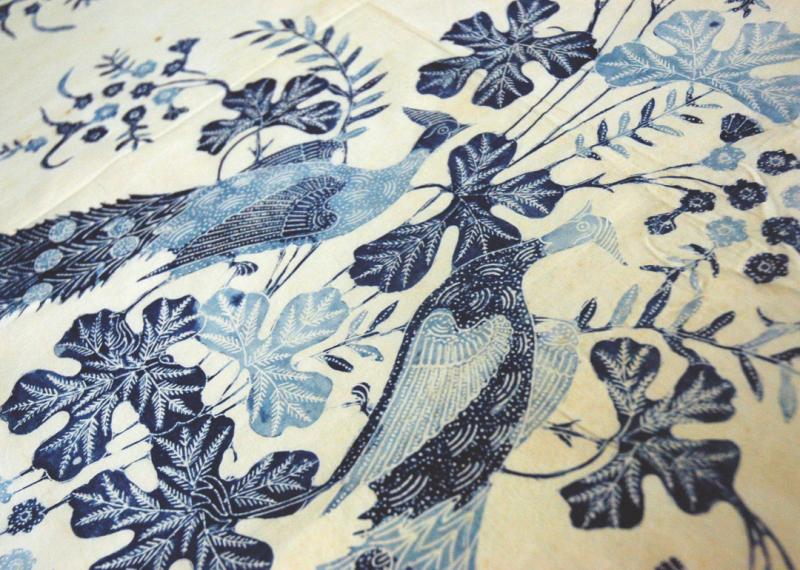Meet the Journal Team
Sumru Belger Krody
Editor in Chief
skrody gwu [dot] edu (skrody[at]gwu[dot]edu)
gwu [dot] edu (skrody[at]gwu[dot]edu)
Sumru Belger Krody is senior curator at The George Washington University Museum and The Textile Museum. Krody specializes in textiles from the late antique era and from the Islamic world. She has curated or co-curated 13 exhibitions, including A Nomad’s Art: Kilims of Anatolia; Binding the Clouds: The Art of Central Asian Ikat; Unraveling Identity: Our Textiles, Our Stories; The Sultan’s Garden: The Blossoming of Ottoman Art; and Colors of the Oasis: Central Asian Ikats. She has authored or co-authored seven exhibition-related publications, along with numerous articles and book chapters. She also teaches courses in the Department of Art History at GW’s Corcoran School of the Arts and Design.
Born in Izmir, Türkiye, Krody holds a bachelor’s degree in classical archaeology from Istanbul University and a master’s in classical archaeology from the University of Pennsylvania. She is a member of the Textile Society of America and Centre International d’Étude des Textiles Anciens.

Julia M. Burke
Editorial Board Member
Walter B. Denny
Editorial Board Member
Dr. Walter B. Denny is University Distinguished Professor Emeritus of the history of art and architecture at the University of Massachusetts at Amherst. He holds master’s and doctoral degrees in Fine Arts from Harvard University. He specializes in the Islamic world, focusing primarily on the Ottoman Turkish artistic tradition and the history of Islamic carpets and textiles. He has held curatorial positions at the Harvard University Art Museums, Smith College Museum of Art, and is currently Charles Grant Ellis Research Associate in Islamic Carpets at The Textile Museum. From 2007 to 2017 Walter was Senior Scholar in Residence at the Metropolitan Museum of Art, and he currently chairs the Visiting Committee for Textile Conservation at the Met. In addition to having curated more than two dozen exhibitions, he has published extensively in the field of Islamic art. In 2012 he received the George Hewitt Myers Award for lifetime achievement in textile scholarship from The Textile Museum. His website can be found here.
Sarah Fee
Editorial Board Member
Dr. Sarah Fee is senior curator of global fashion and textiles at the Royal Ontario Museum in Toronto, Canada. She oversees the museum’s collection of textiles and related objects from Asia, Africa and the Islamic world. With training in anthropology and African studies, Dr. Fee's major research focuses on the island of Madagascar, where she lived for several years. She curated the exhibition Gifts and Blessings, The Textile Arts of Madagascar for the Smithsonian National Museum of African Art, and, together with Georges Heurtebize, founded the Tandroy Ethnographic Museum in Berenty, Madagascar. Her interests have spread to the dress and weaving traditions of the Indian Ocean, including Southeast Asia, East Africa, Southern Arabia and India. Thematic interests include textile trades, cross-cultural appropriations of cloth, gender, ceremonial exchange, spinning and dye technologies. Dr. Fee is cross-appointed to the art department at the University of Toronto. She is a "chercheuse affiliée" at the Musée du quai Branly in Paris, and served as a board director at large of the Textile Society of America from 2010 to 2014.

Sylvia Houghteling
Editorial Board Member
Sylvia Houghteling is an Associate Professor in the Department of History of Art at Bryn Mawr College where she teaches courses on early modern visual and material culture, the history of textiles, and South Asian art and architecture. After receiving her Ph.D. in the History of Art from Yale University in 2015, she held the Sylvan C. Coleman and Pam Coleman Memorial Fund Fellowship in the Department of Islamic Art at the Metropolitan Museum of Art. Houghteling’s ongoing research is concerned with questions of textiles and temporality and the unique material histories of the eastern Indian Ocean trade. Her first book, The Art of Cloth in Mughal India, was published by Princeton University Press in 2022 and received the 2024 R.L. Shep Memorial Book Award from the Textile Society of America.

Myriem Naji
Editorial Board Member
Myriem Naji is an honorary research fellow at the Department of Anthropology, University College London, where she earned a Ph.D. in 2008. In 2011, she curated the exhibition Weaving the Threads of Livelihood: The Aesthetic and Embodied Knowledge of Sirwa Weavers at the Brunei Gallery, SOAS University of London. Her current project, for which she received an Endangered Material Knowledge Programme grant, aims to research textile knowledge systems in Morocco. Dr. Naji is a member of the Early Textile Society Group and the Centre for the Anthropology of Technics and Technodiversity, and a founding member of the Under the Carpet group. Her research interests include the anthropology of techniques with special reference to textiles, dyes and dress; the anthropology of knowledge; and economics, gender and the production of value. Her publications include the exhibition catalog for Weaving the Threads of Livelihood; studies in the embodied and material experience of weaving in the Sirwa (Journal of Material Culture, 2009); the anthropology of techniques (Journal of Material Culture, 2009); aging carpets (Surface Tensions, 2013) and craft and livelihood (Critical Craft, 2020).

Jeffrey C. Splitstoser
Editorial Board Member
Dr. Jeffrey C. Splitstoser is assistant research professor of anthropology at the George Washington University and vice president of the Boundary End Archaeology Research Center. He has studied ancient Andean textiles for over 20 years, having recently discovered (with Tom Dillehay, Jan Wouters and Anna Claro) the world’s earliest known use of indigo blue in a 6,200-year-old cotton textile from the prehistoric site of Huaca Prieta. Dr. Splitstoser specializes in Wari "khipus," colored and knotted string devices that Andean peoples used to record information. He co-curated (with Juan Antonio Murro) the exhibition Written in Knots: Undeciphered Records of Andean Life at Dumbarton Oaks in Washington, D.C. Dr. Splitstoser’s research includes reproducing the khipus and textile structures he encounters: processing, spinning and dyeing the fibers, as well as growing cotton and dye plants. Dr. Splitstoser is an editor of the journals Research Reports on Ancient Maya Writing and Ancient America, and was the guest editor of volume 49 of The Textile Museum Journal. He was a junior fellow at Dumbarton Oaks and is currently a research associate of the Institute of Andean Studies and a Cosmos Club Scholar. Dr. Splitstoser received a Ph.D. in anthropology from the Catholic University of America, Washington, D.C.

Daniel Biggs
Editorial Assistant
tmjournal gwu [dot] edu (tmjournal[at]gwu[dot]edu)
gwu [dot] edu (tmjournal[at]gwu[dot]edu)
Daniel Biggs is a master's student in human paleobiology at the Center for the Advanced Study of Human Paleobiology at the George Washington University. He holds a bachelor’s degree in anthropology from Arizona State University and has formerly held positions at the Institute of Human Origins, Arizona State University’s Hayden Library and the John C. Hitt Library at the University of Central Florida.









